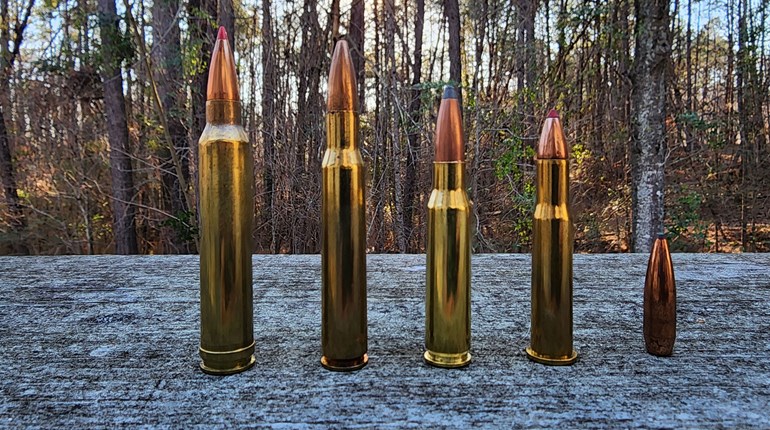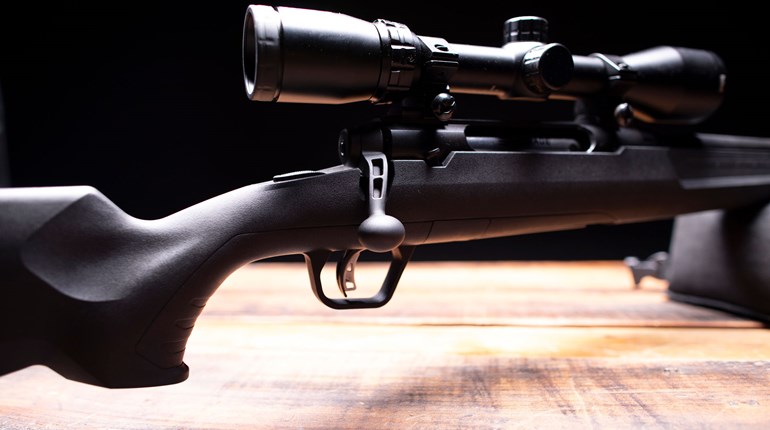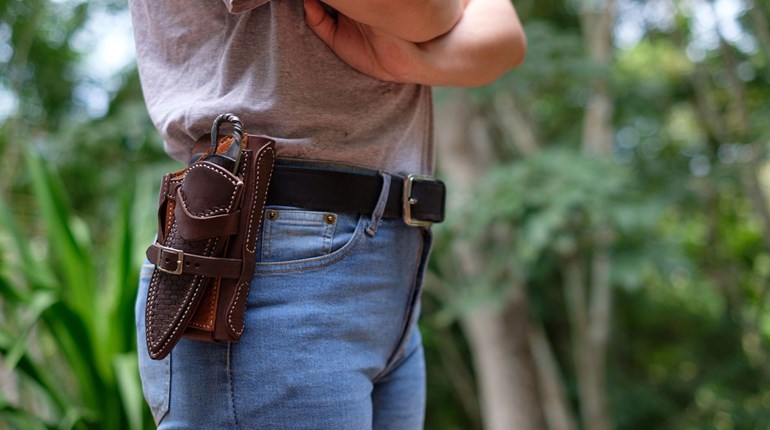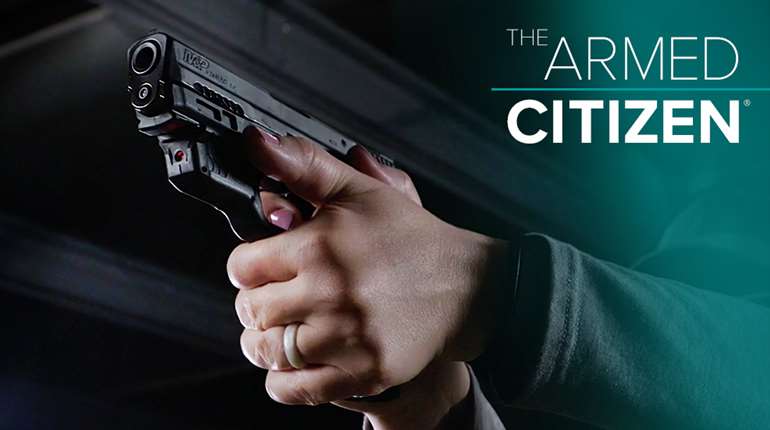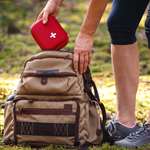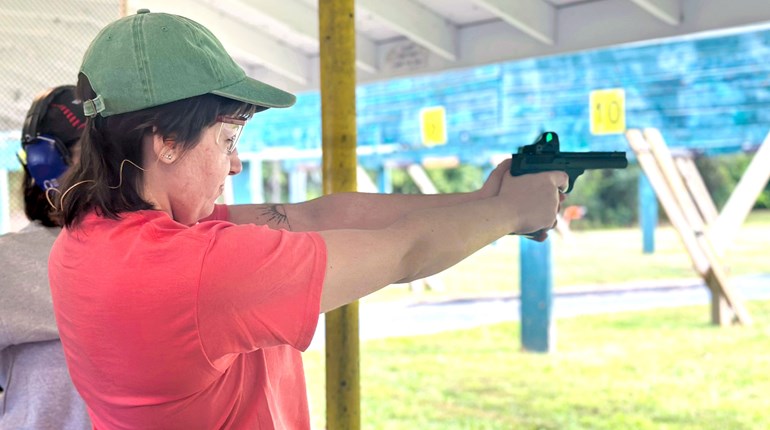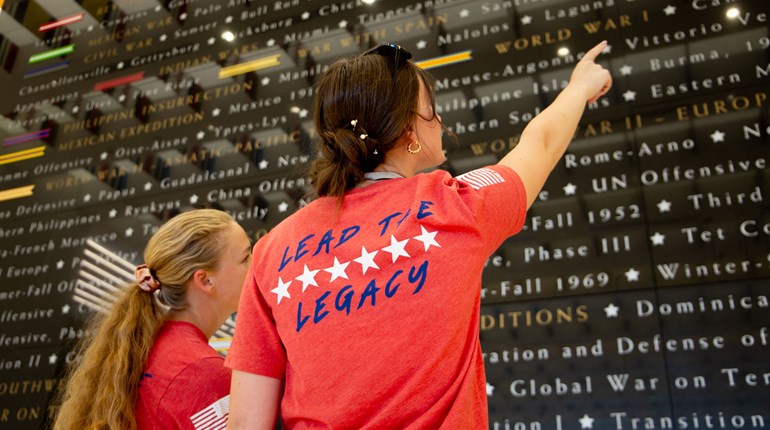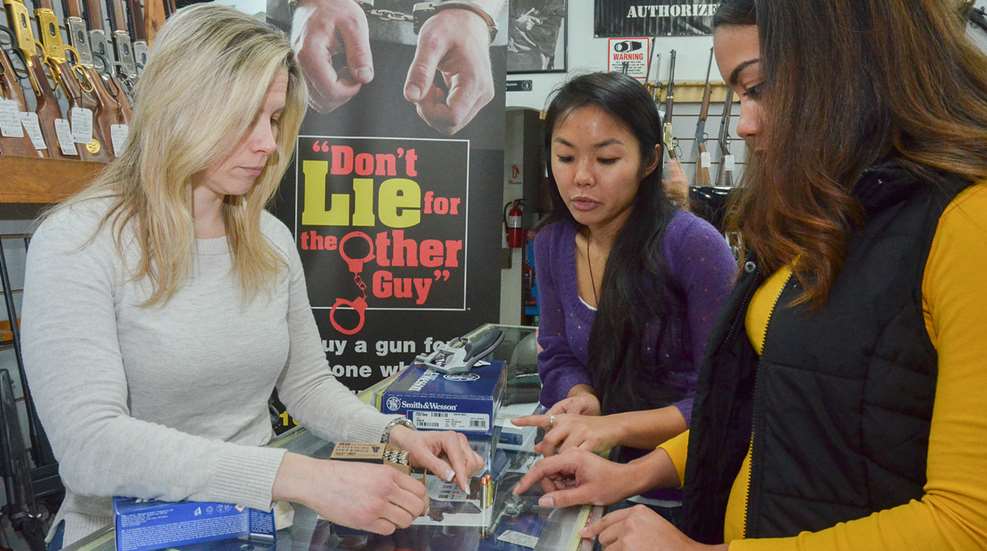
If you’ve never purchased a firearm before, the process might seem a little intimidating—but we promise, it’s not. Deciding what to buy is the difficult part! Once you’re ready to make a purchase, the process is simple.
First, understand that this process applies to buying from an FFL (Federal Firearms License) holder. To legally sell guns as a business or with regularity, an individual or a business must hold a valid FFL issued by the Bureau of Alcohol, Tobacco, Firearms and Explosives, which we commonly refer to using the acronym ATF. In most states, one individual may sell a firearm to another individual without going through an FFL, assuming it’s a rare occurrence and the seller isn’t doing this regularly. Check the laws in your state if you are buying from an individual. A few states have laws requiring a special license or permit in order to purchase and/or to own a firearm or a particular type of firearm, so you should look up the laws in your state before you head to the gun store, or you’ll be turned away. That said, here’s what you’ll experience when you purchase a firearm from a gun store or at a gun show from an FFL dealer.
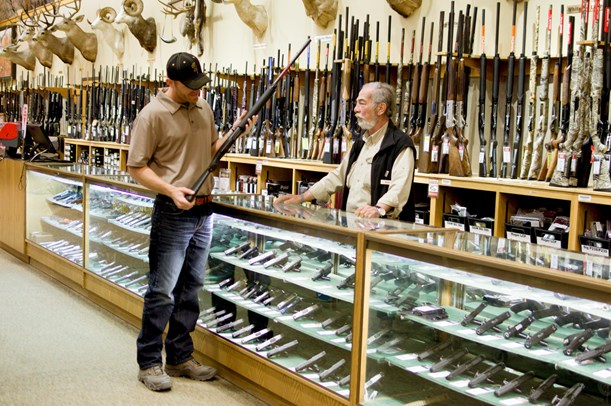
Howard Communications image
When you let the worker behind the counter of your local gun store know that you’re ready to purchase the firearm, he or she might ask you a few questions, intended to help make sure you’re buying the best gun for your purposes, or they might just hand you a form and get the process started.
The form you will fill out is federal form 4473, the Firearms Transaction Record, which you can find a copy of here. The seller will fill out some portions of the form first, recording the details of the gun being sold, including its serial number. If you are purchasing more than one firearm at the same time, they can all be listed on the same form.
After the seller completes his or her portion of the form, they will pass it to you. The form asks for your address and personal details like your height, sex, ethnicity, birth date, country of citizenship, and more. Your social security number is optional, but the ATF says including it “will help prevent misidentification,” which can happen if you have a common name.
The form then asks a series of questions that ensure you are legally permitted to purchase a firearm. You must answer these honestly (lying on this form is a crime), and if any of your answers disqualify you, the transaction is over and you will not be permitted to purchase the gun. These questions seek to find out if you are the true purchaser of the gun, if you are a felon, if you are an unlawful user of any illegal substances, etc.
Once you’ve cleared the qualifying questions, the seller will ask for a copy of your ID and, depending on the state, will call the FBI number for a NICS (National Instant Criminal Background Check System) check, which will be run immediately. A few states have laws that allow concealed carry permit holders to skip this check completely, as you have already completed a background check in order to have obtained the permit.
When the background check clears, which typically takes only a few minutes over the phone or electronically, you will pay for the firearm, the seller will complete the rest of the form, and you may leave with your gun depending on your state laws. A handful of states—California, Washington, Hawaii, Minnesota, Illinois, Florida, Rhode Island, New Jersey and Maryland, as well as the District of Columbia—have laws that require a waiting period before you may take the gun home.
After the purchase and the waiting period, if applicable, are complete, you may take the firearm home and begin exercising your right to keep and bear arms as guaranteed under the Second Amendment. Congratulations! (NSSF image)
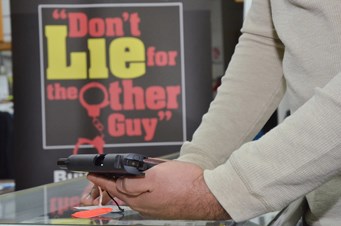
What Happens to the Form?
The FFL holder is required to keep your 4473 form on file for no less than 20 years, after which time they may destroy it. If the FFL holder goes out of business before 20 years is up, all of their filed 4473 forms must be shipped to the ATF for safe keeping. If the gun is ever used in a crime, ATF can trace its serial number back to the original purchaser (you) through those 4473 records. This is not evidence that you are the current owner; it only proves that you purchased the gun once upon a time on the date of record.
For this reason, if you ever decide to sell this gun, it is wise to keep a record of the date of sale and perhaps even have the buyer sign and date a sales slip. Alternatively, when selling a firearm to an individual, you can have them meet you at a local FFL dealer and let the dealer facilitate the private sale, which will require the buyer to fill out a 4473 and pass a NICS check. The dealer will likely charge you a fee of $20 to $50 for this service, but it provides a very clear paper trail that you no longer own the firearm. And it’s legally required in some states anyway.
Special Note: Refusal of Sale
An FFL dealer has the legal right to refuse to sell you a firearm for almost any reason if he or she feels uncomfortable about the sale. Law-abiding citizens have little to worry about in this regard, but if you walk into a store with your shifty-looking boyfriend and he asks all the questions but gets you to fill out the form, the seller might have reason to suspect that something is amiss (it is illegal to purchase a firearm for someone who is not legally permitted to make their own purchase, otherwise known as a "straw purchase").
Buying a firearm at your local gun store is a simple and safe process that ensures state and local laws are followed to protect all parties and remain in compliance with the law. Once you have decided what to buy, the actual purchase takes less than 10 minutes in most cases. The form is easy to fill out, the background check will come back almost instantly, and you’ll be on your way to enjoying your Second Amendment right to keep and bear arms. Enjoy your new firearm!












